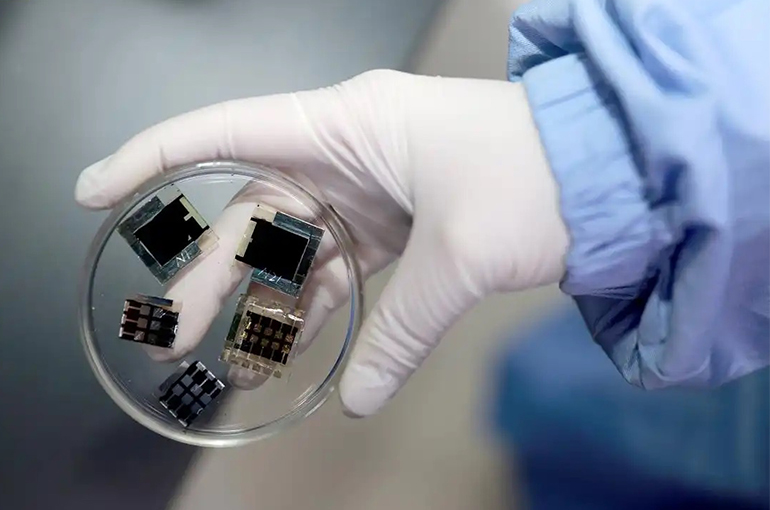 Chinese Researchers Develop 'Longevity Armor' for Perovskite Solar Cells
Chinese Researchers Develop 'Longevity Armor' for Perovskite Solar Cells(Yicai) March 7 -- A research team from East China University of Science and Technology has unveiled a breakthrough method to extend the lifespan of perovskite solar cells, which boast high efficiency, low cost, and lightweight features but typically suffer from poor stability.
The team has developed an ultrathin protective layer for perovskite materials using graphene and a special transparent polymer, according to the 'Graphene-polymer reinforcement of perovskite lattices for durable solar cells' paper published in prestige journal Science yesterday. Experiments showed this "armor" doubles materials' stress resistance, reducing the expansion rate to 0.08 percent from 0.31 percent.
Perovskite cells generate electricity like traditional silicon cells and can be made paper-thin, flexible, and even attached to clothing or windows. However, they rapidly degrade under sunlight, failing to meet practical application requirements due to this critical longevity flaw.
Perovskite materials expand by over 1 percent when exposed to light, the ECUST team noted, adding that they repeatedly expand and contract under sunlight, like an inflating and deflating balloon, causing the internal crystals to squeeze each other and generate destructive forces, ultimately leading to structural failure.
Cells protected by the team's new "armor" maintained 97 percent efficiency after 3,670 hours, or about 153 days, of continuous operation under simulated real-world conditions of intense light and high temperatures, marking the longest-ever stable operation period for perovskite cells and providing feasibility for commercial use.
The ECUST team has begun pilot trials with industry partners, China Central Television reported. Mass production could revolutionize applications, enabling power-generating building facades, foldable outdoor charging mats, and even phone-charging solar films.
According to estimates, the price of perovskite cells can be just a third of that of silicon cells, with room for further efficiency improvements.
Editor: Martin Kadiev